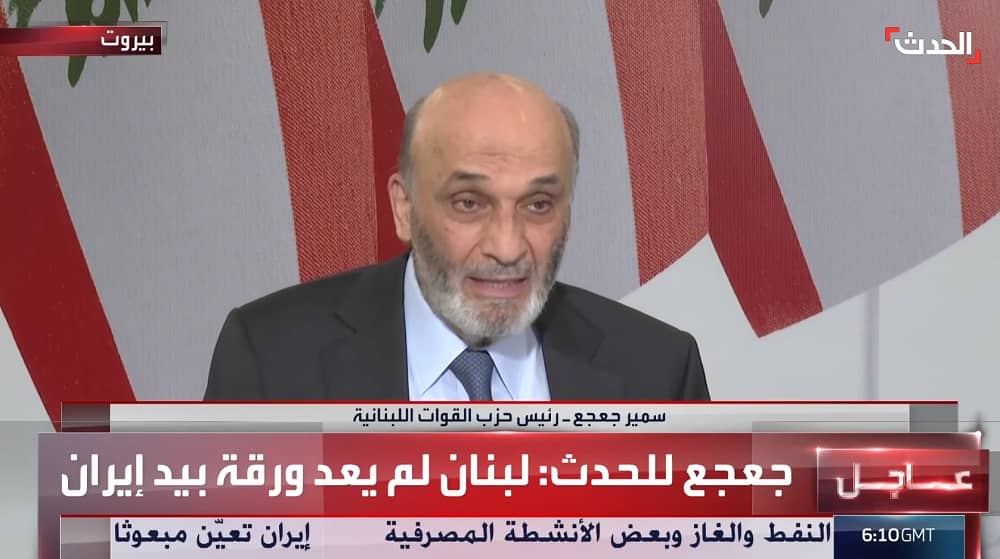Facebook
Twitter
LinkedIn
Pinterest
Reddit
Email
Print
 Samir Geagea Interview with Al-Hadath. Subtitle reads: “Lebanon is no longer a card in Iran’s hand
Samir Geagea Interview with Al-Hadath. Subtitle reads: “Lebanon is no longer a card in Iran’s hand
Sovereignist forces in Lebanon, notably the Lebanese Forces and the Kataeb Party, have escalated their public campaign demanding that the state assert full authority by dismantling Hezbollah’s armed wing—a group deeply tied to the Iranian regime. According to an Al‑Arab report, Hezbollah has abandoned its long-standing ambiguity on its weapons, suddenly declaring absolute refusal to disarm—fueling fears that the group is prioritizing Iran’s regional agenda over Lebanese state sovereignty.
International actors, particularly the United States, have intensified pressure on Beirut to implement U.N. Resolution 1701 and enforce a timeline for integrating all armed forces under state control. U.S. envoy Thomas Barak reportedly told Lebanese officials that “time is running out” and urged a firm response.
Samir Geagea, leader of the Lebanese Forces, condemned Hezbollah’s weapons as “useless in defending Lebanon” and only bringing “harm and destruction.” Geagea warned that indecision could lead to a “very bad summer,” hinting at domestic instability or even civil conflict if the state does not act. He called for decisive action to dismantle armed non‑state groups and stop the fragmentation of authority between state and parallel power structures.
Leaked Documents Expose #Iranian Regime’s Unraveling Agenda in #Syria and #Lebanonhttps://t.co/dp64mP3FPS
— NCRI-FAC (@iran_policy) December 30, 2024
The Kataeb Party echoed these concerns, accusing Hezbollah of outright violating Lebanon’s constitution and holding it fully responsible for any subsequent deterioration in security or political stability. The party warned that Lebanon risks growing international isolation if it fails to enforce Resolution 1701 and re-establish the state’s monopoly over force.
The militant group Hezbollah functions as Tehran’s most significant proxy in the region. The Iranian regime has provided substantial funding as well as weapons, training, and logistical support to Hezbollah to maintain strategic influence over Lebanon and the wider region. The group’s refusal to disarm now is seen as an extension of Iran’s policy to subvert Lebanese sovereignty and entrench parallel authority.
With Lebanon collapsing under economic crisis since 2019 and suffering repeated hostilities involving Hezbollah and Israel, critics warn that unless Beirut acts decisively, the country could face further fragmentation—politically, institutionally, and internationally.